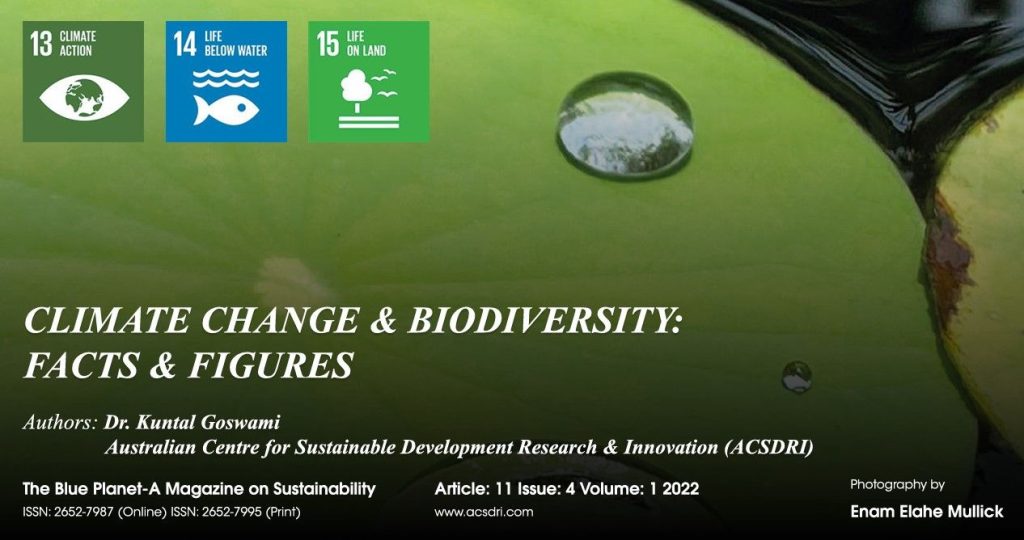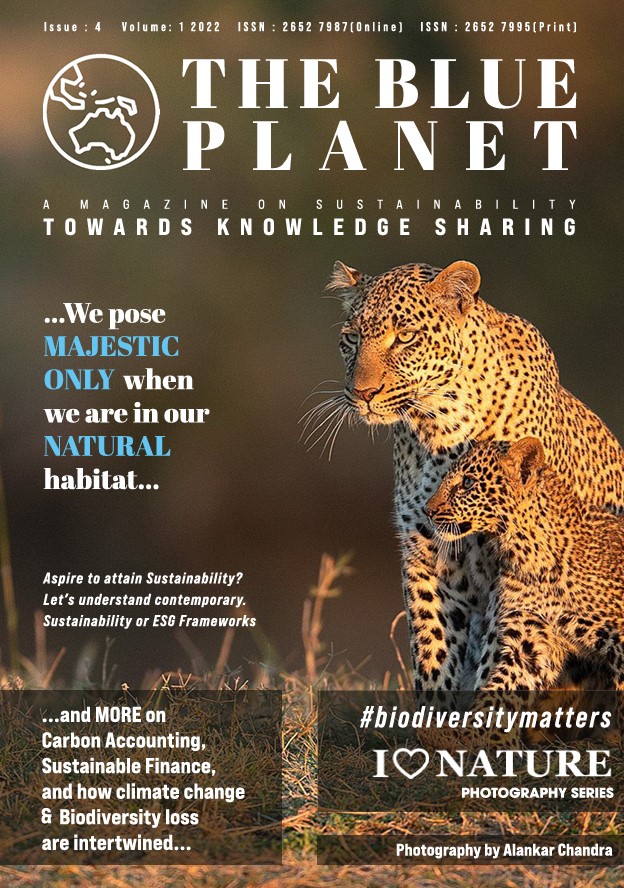Magazine Print
The Blue Planet – Sustainability Magazine (2022 Edition)
The Blue Planet - Sustainability Magazine (2022 Edition)
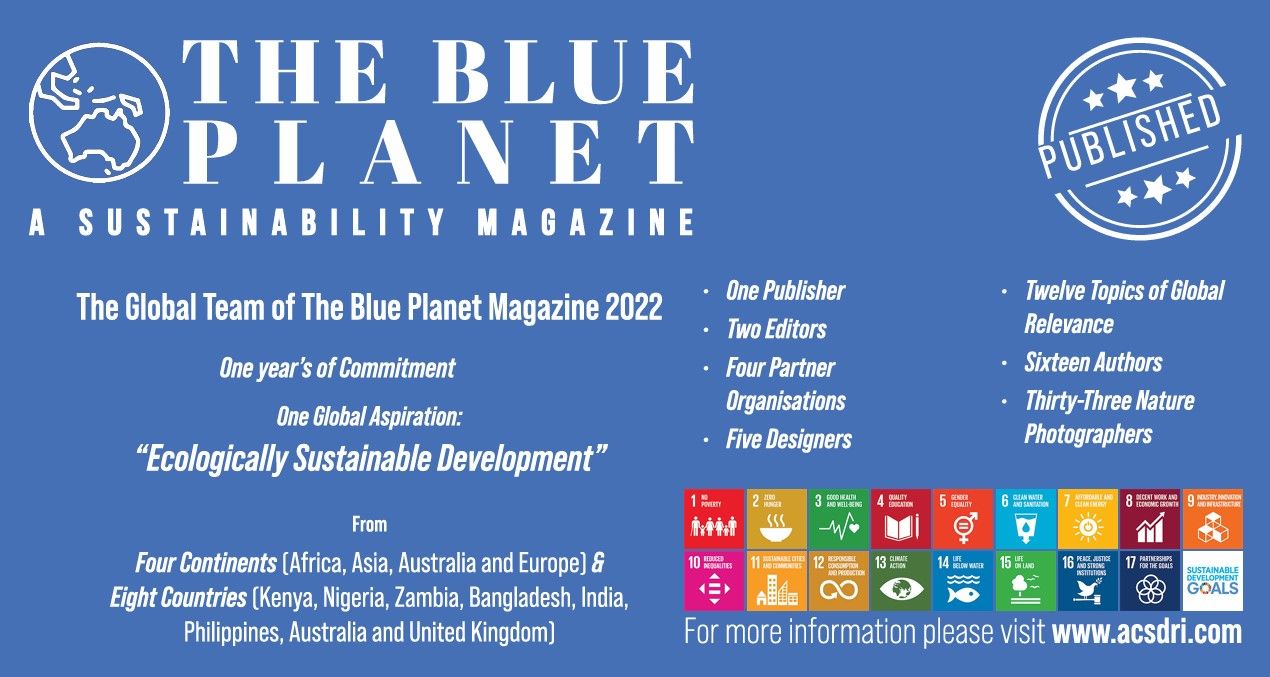
The Blue Planet - A Sustainability Magazine
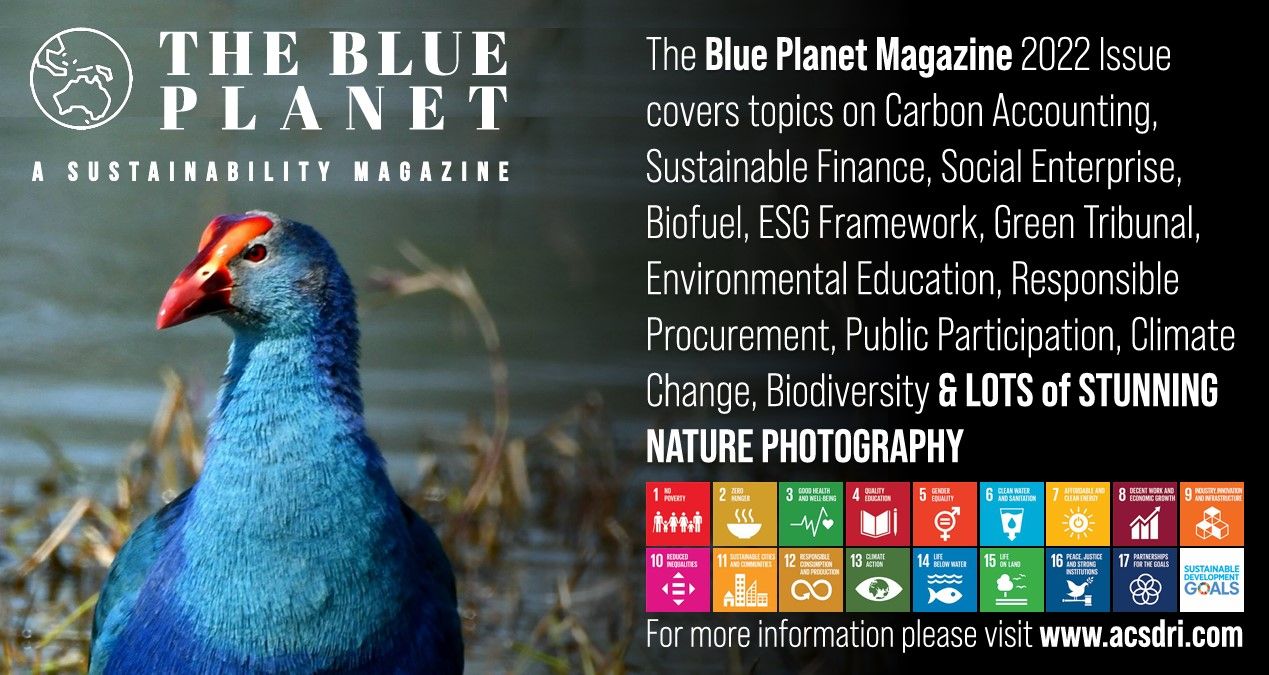
Table of Contents
Carbon Accounting and Sustainable Finance: The New Way Forward
The cover story introduces a conceptual understanding of carbon accounting and sustainable finance. Carbon Accounting – A step to combat Climate Change…The Paris Agreement is the first legally binding international treaty to limit the emission of greenhouse gases and to combat climate change…Sustainable finance embeds sustainability values and factors (environmental, social, and governance) in financial decision-making. The article highlights that sustainable investment has grown by 55% between 2016 and 2020. Globally, the cumulative value of sustainable investment is about $35.3 trillion in 2020. READ MORE
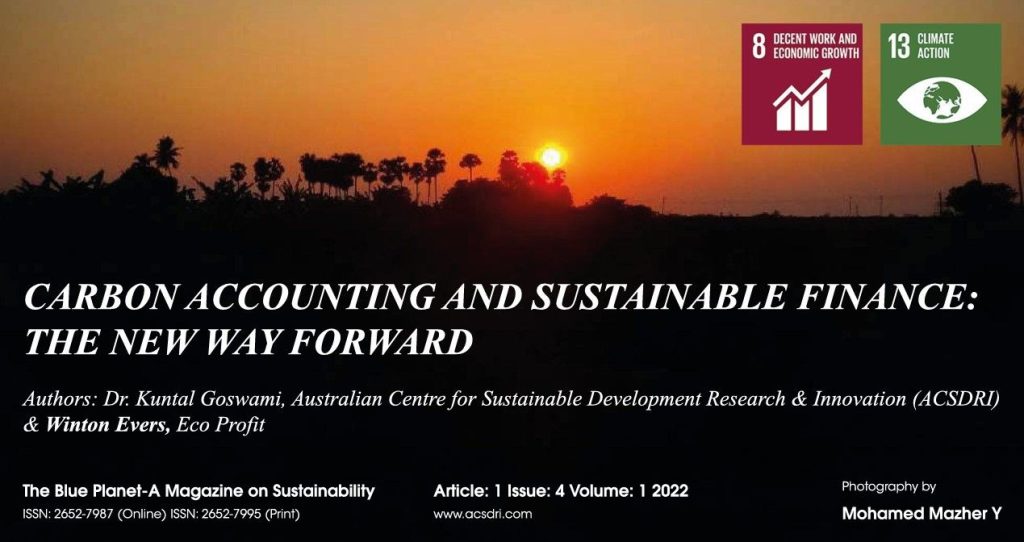
The Multidimension Initiatives of Dana Asia: To Fight Poverty & The Plastic Crisis in the Philippines
Every year, the Philippines contributes an estimated 0.75 million metric tons of mismanaged plastic into the ocean, including nearly 60 billion sachets, 17.5 billion shopping bags, and 16.5 billion sandwich bags. As a result, natural water sources are heavily contaminated, and waterways are clogged, leading to worsening flooding – an issue already exacerbated by climate change. READ MORE
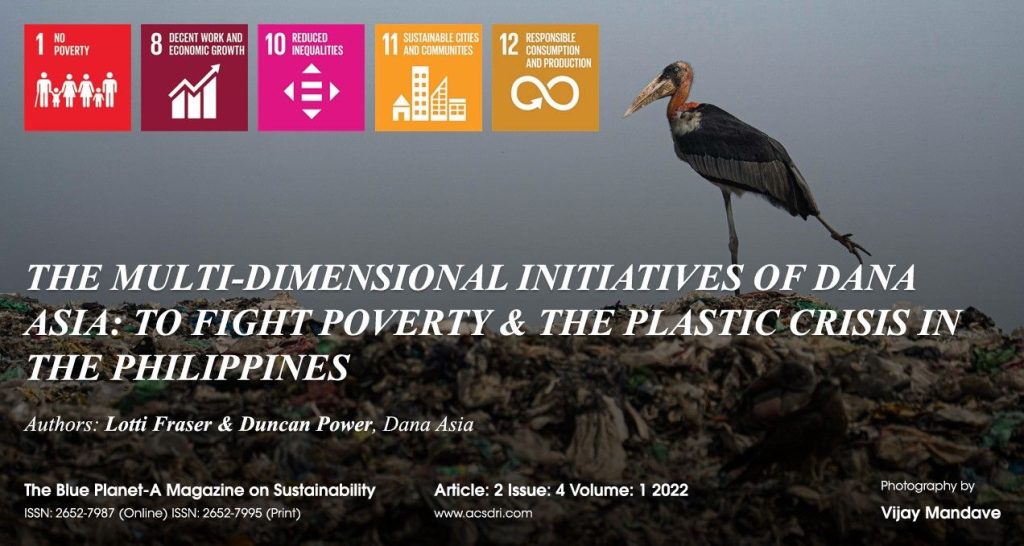
Developing an Awareness Program on Energy Conservation & Renewable Energy Use
Energy conservation and energy efficiency are the two utmost needs of our time. While our commitment to conserve energy will lead to lesser consumption of energy, on the other hand, commitment to achieving energy efficiency involves adopting technologies that will require less energy to perform the same functions. READ MORE
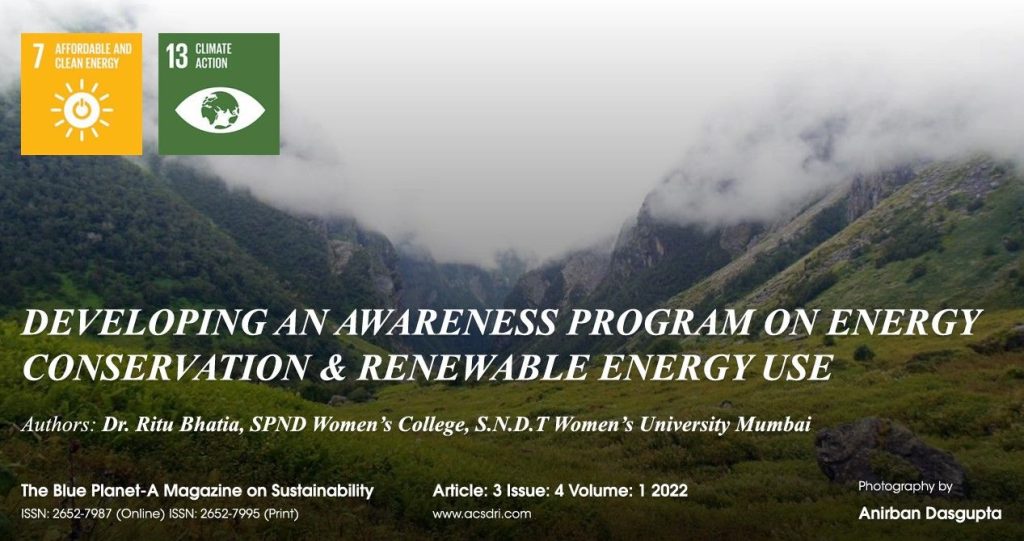
Structuring Power: Managing the relationship between Government, Citizens, and Businesses
The relationship between government and business is underpinned by a core tension: on the one hand, how do we ensure that the government does everything it can to help private enterprise thrive, but on the other hand, how can we prevent the government from interfering too much in business? This article explains some critical structures, institutions, and principles that manage government, citizens, and business relationships. READ MORE
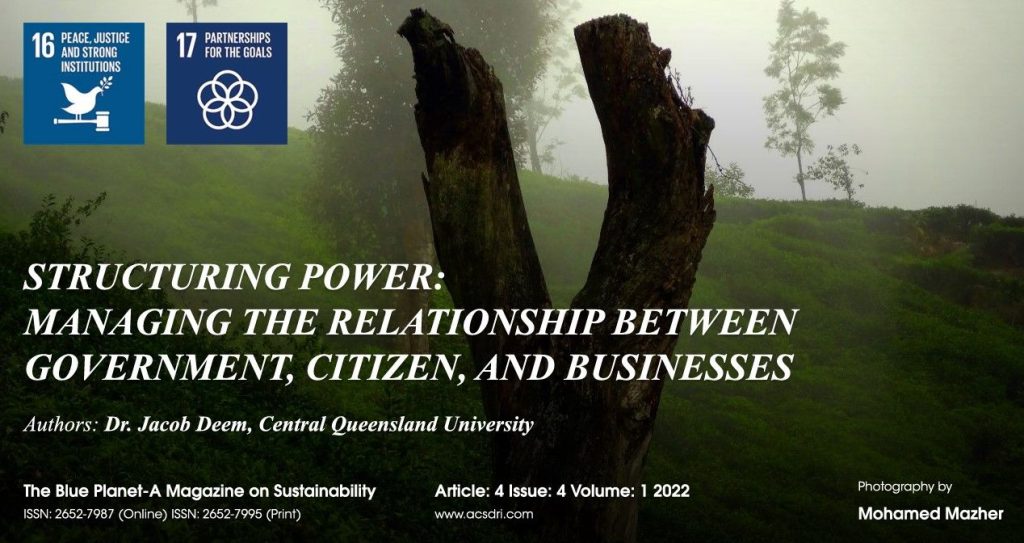
The Role of India’s National Green Tribunal in Ganga and Yamuna Pollution Abatement
Rivers are the most critical natural resource for sustaining life on Earth. The river Ganga and its tributary river Yamuna embody Indian culture and spirituality. The transboundary river originates at the Gangotri Glacier. It ends at the Bay of Bengal, after flowing north to east for about 2,495 km, covering most of India’s northern and eastern states. Although it has significant economic, environmental, cultural, and religious significance, the river Ganga is tenth among the most polluted rivers in the world. READ MORE
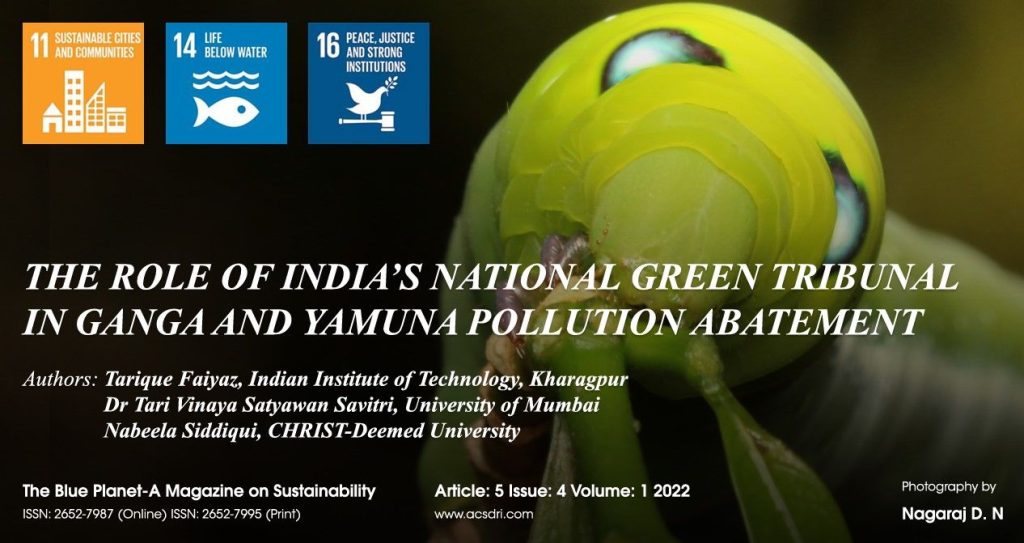
Aspire to Attaining Sustainability? Let’s Understand Contemporary Sustainability or ESG Frameworks
If an organization aspires to attain Sustainability, it is vital to understand the fundamental perspective of contemporary ESG Frameworks or Sustainability Reporting Standards. The five most prominent contemporary ESG frameworks or Sustainability Reporting Standards have been promulgated by The Global Reporting Initiatives (GRI), International Integrated Reporting Council (IIRC) or Integrated Reporting (IR.), Sustainability Accounting Standard Board (SASB), Climate Disclosure Project (CDP) and Climate Disclosure Standards Board (CDSB). READ MORE
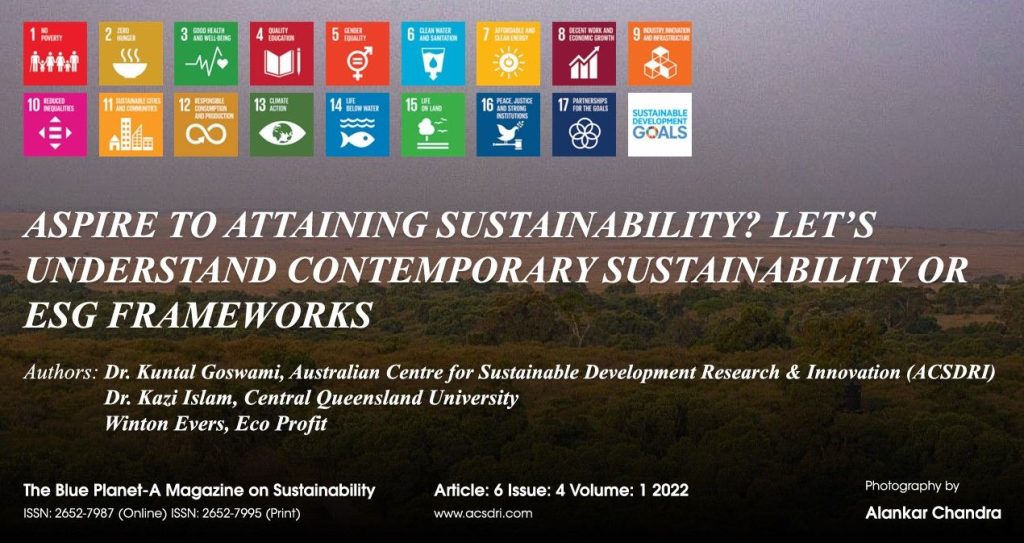
Envirotech Education’s Moreton Bay Healing Sea Country Program
Envirotech Education is an award-winning Registered Training Organisation (RTO) in Australia, offering first-of-its-kind accredited vocational courses in Marine Habitat Conservation and restoration (MHCR) and Sustainability operations for its domestic and international students. In addition, the college also offers other courses in the disciplines of Business, Entrepreneurship, Hospitality, and Information Technology. An RTO offers vocational education resulting in qualifications or statements of attainment that are recognized and accepted by industry and other educational institutions throughout Australia. READ MORE
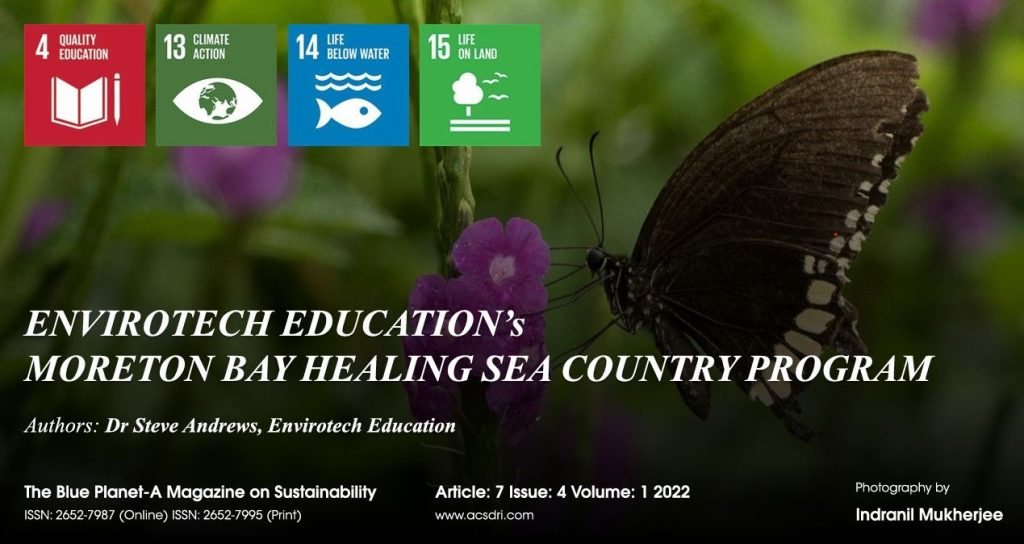
Responsible Procurement: An Organization’s Quest for Green Transition
The fundamental goal of the COP26 in Glasgow was to agree on achieving a global net zero target by the mid-century and not raising global warming above 1.5 degrees centigrade. At this conference, these goals were upheld by signing the Glasgow Climate Pact and by agreeing on the Paris Rulebook. At the end of COP26, Alok Sharma, the President of the Glasgow Conference, said, “…We can now say with credibility that we have kept 1.5 degrees alive. But its pulse is weak, and it will only survive if we keep our promises and translate commitments into rapid action…“. In the same context, the UK lead negotiator, Archie Young, said, “…across the board, we achieved what we set out to achieve…”.READ MORE
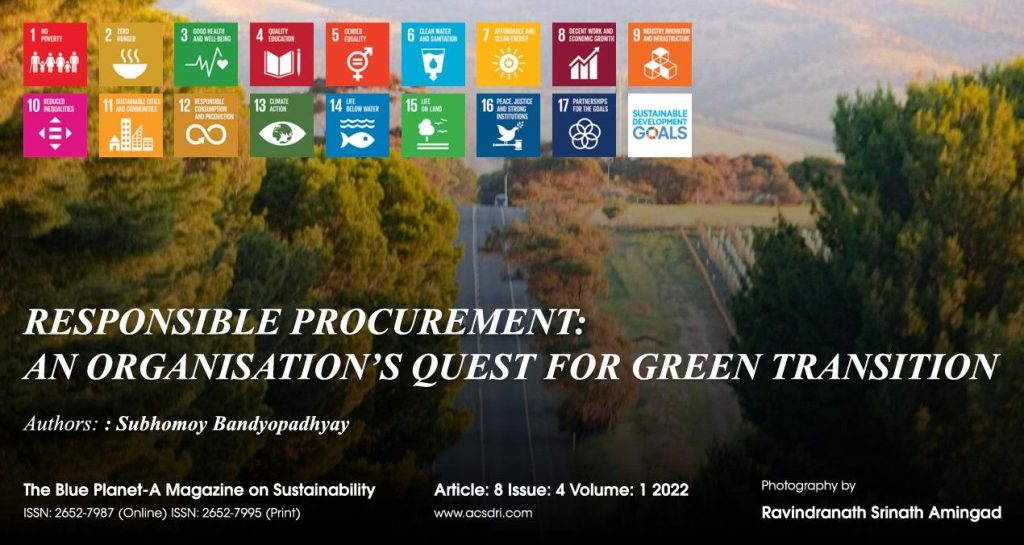
Biofuels: The Renewable Energy Sector’s Sleeping Giant
Australia generates 29% of its total electricity demand from renewable sources such as solar, wind, and hydro as of 2021; surprisingly, it generates less than 1% from bioenergy. According to the Global Bioenergy Statistics 2020, “…bioenergy is the single largest renewable heat source globally with a share of more than 95%…” as of 2018 data. What are Biofuels? Biofuels are genuinely the oldest form of renewable energy, used by humans worldwide since the dawn of human civilization. When troglodytes created the first ever wood fire for heating and cooking, they were the first humans to utilize biofuel to produce bioenergy. Thus, bioenergy is the energy that is derived from biofuels. These fuels can be liquid, solid, or gas, technically termed bioliquids, biomass, and biogas, respectively. All biofuels are derived from organic matter, which may be wood, crop, municipal waste, or other organic sources. READ MORE
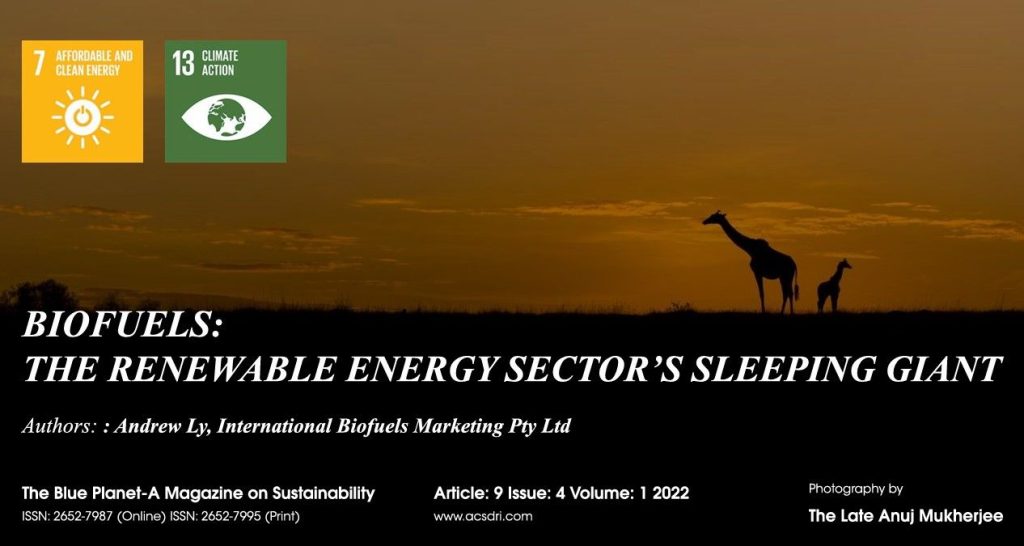
Erosion of Public Participation Rights: Reflection by a Retired Environmental Lawyer and Member of Parliament
Over the last several decades, one of the most consistent and depressing themes in environmental law has been the erosion of public participation rights. This includes ‘soft’ rights, such as the right to make a submission or have your say, and ‘hard’ rights, such as the right to appeal against the merits of government decisions. Also being eroded are basic rights of judicial reviews, such as the ability of environmental advocates and groups to insist that proper processes be followed, and the environment be properly protected. Less obvious erosions are at the parliamentary level, where the ongoing tension between the Executive and the Legislature sees the former prevailing over the latter more often than not. This article uses some South Australian examples from recent decades to show how this erosion is achieved and why environmental professionals should be concerned about the implications. READ MORE
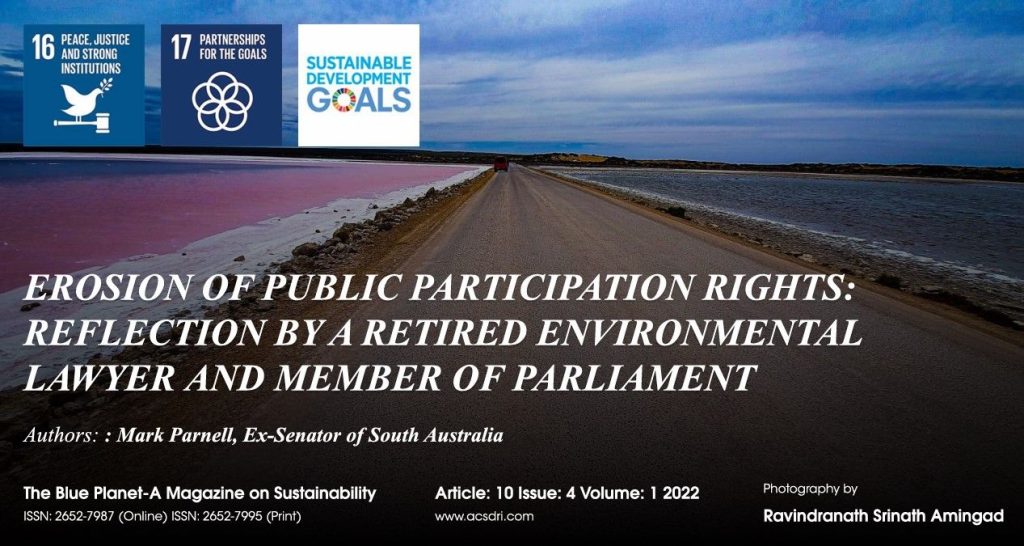
Climate Change & Biodiversity: Facts & Figures
Climate Change and Biodiversity Loss are our time’s two most intertwined risks. These risks are human induced and interlinked through the Carbon Cycle. We are living in the era of human
induced Carbon Imbalance We are living in the era of human induced Carbon Imbalance. READ MORE
